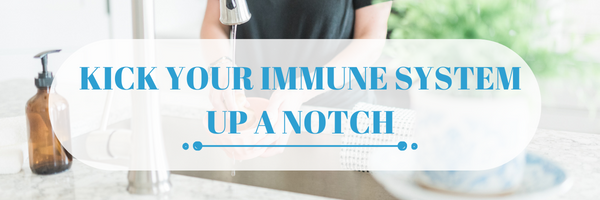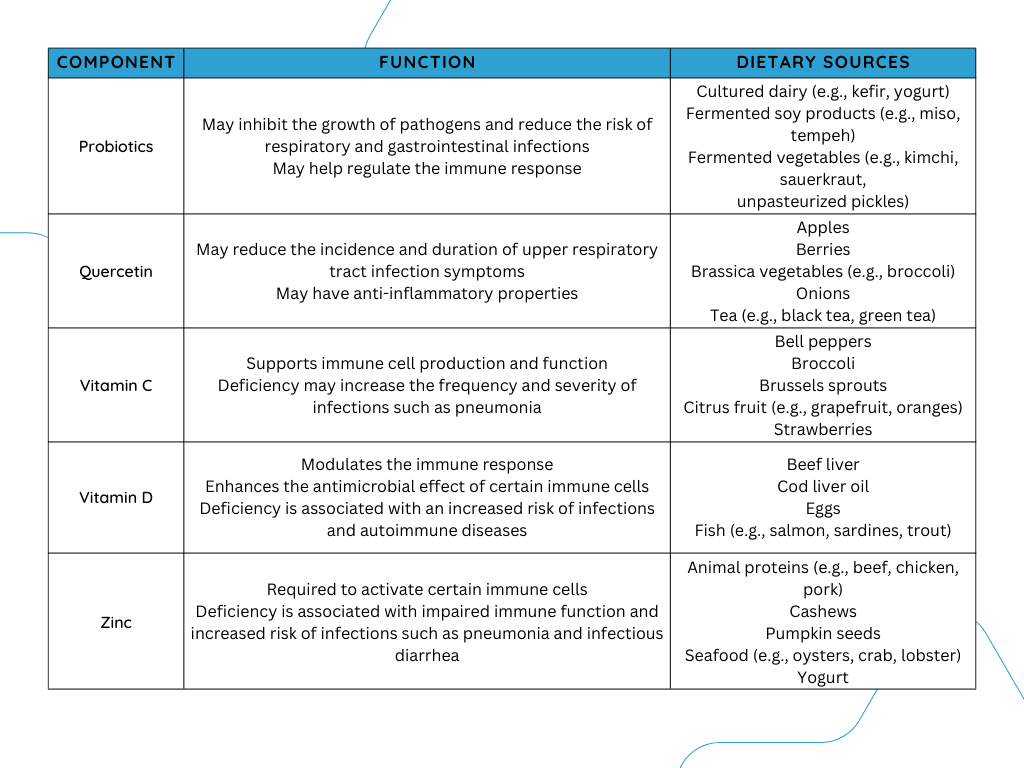Kick Your Immune System Up a Notch

Fall can be a beautiful yet challenging time of the year.
The arrival of cooler temperatures and shorter days can significantly impact our immune health, mood, and resilience to stress.
It may be helpful to understand what your immune system looks like and how to best support it... Contact me if you'd like a custom designed package to support your specific immune system challenges.

The immune system is the body’s primary defense mechanism against potentially harmful invaders, such as pathogens, antigens, and immunogens. The immune system is made up of various cells, tissues, and substances, including the skin, red and white blood cells, microbiota, antibodies, and cytokines (cell-signaling molecules).
The immune system’s defenses are generally classified as two responses. The innate immune response, your first line of defense, is described as “non-specific” since the defensive actions do not differ between foreign substances. The adaptive immune response is the body’s acquired or learned response to specific pathogens or other compounds that it has previously encountered.
CAUSES AND RISK FACTORS FOR COMPROMISED IMMUNE HEALTH
Several factors may be associated with immune dysfunction and increased susceptibility to disease, including:
- Antibiotic use
- Certain health conditions (e.g., allergic asthma, certain cancers, depression, obesity)
- Certain nutrient deficiencies (e.g., vitamins A, B, C, D, and E, copper, iron, selenium, zinc)
- Chronic stress
- Excessive alcohol consumption
- Intense or excessive exercise
- Intestinal dysbiosis (i.e., imbalanced gut microbiota)
- Chronic sleep deprivation
- Sedentary lifestyle
- Smoking and e-cigarette use
SUPPORTING IMMUNE HEALTH
The following lifestyle interventions may improve immune health and reduce disease risk.
DIET
Research suggests that a poor nutritional state impairs immune function and increases susceptibility to
infectious and chronic diseases. Consuming a balanced, whole foods diet, such as the Mediterranean diet,
supports overall health and immune function. The table below summarizes some immune-supportive dietary
components and their dietary sources.

PHYSICAL ACTIVITY
Research has shown that regular physical activity may have immunoprotective effects and may reduce the
risk of certain cancers, such as breast cancer. On the other hand, strenuous exercise, such as competitive
athletic training, may result in an impaired immune system and increase the risk of infections, such as upper
respiratory infections. Current exercise guidelines for adults include a minimum of 150 minutes of moderate
activity per week, such as brisk walking, biking, doing water aerobics, and playing tennis.
SLEEP
Chronic sleep loss has been associated with immunodeficiency, increased inflammatory markers, an
impaired response to influenza vaccination, and increased susceptibility to the common cold. According to
the Centers for Disease Control and Prevention (CDC), adults require seven or more hours of sleep per night.
Sleep hygiene practices, such as minimizing your exposure to blue light and maintaining a regular sleep
schedule, may help you to improve sleep quality.
STRESS MANAGEMENT
Long-term or chronic stress may suppress immune function by decreasing immune cell count and increasing
inflammatory responses. Incorporate ways to manage your stress, such as counseling, mindfulness,
breathing exercises, and yoga.









